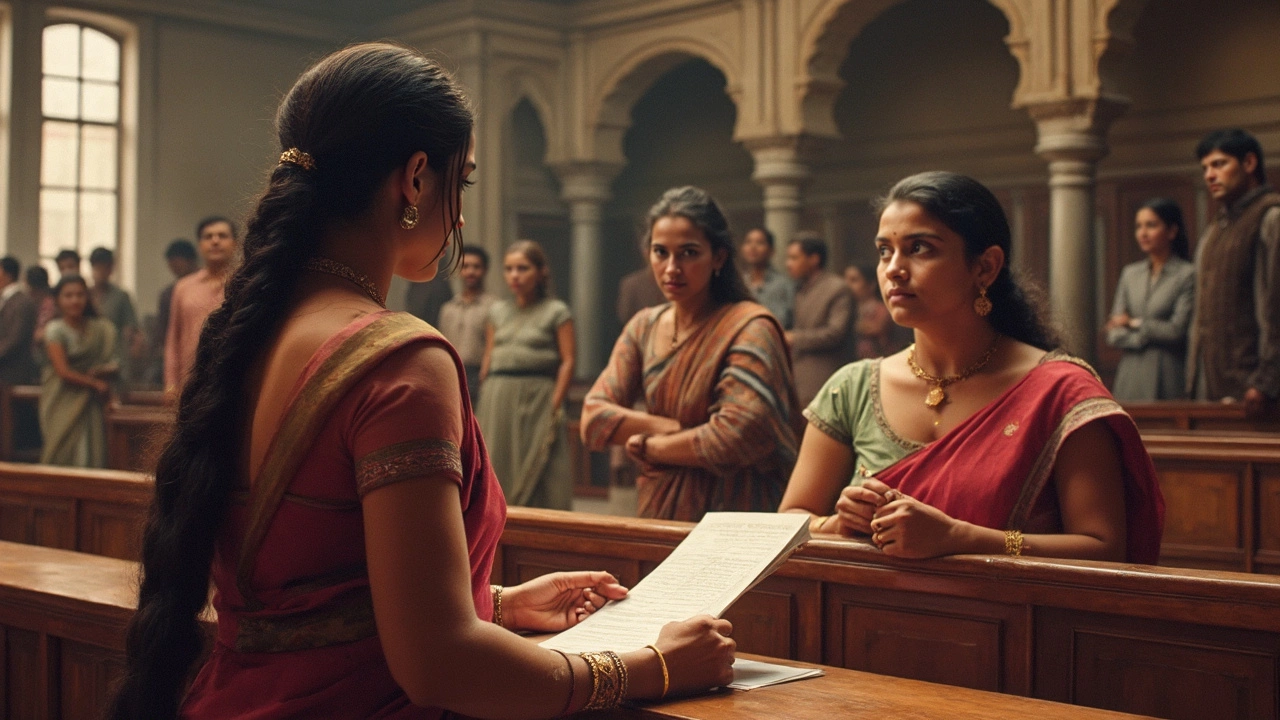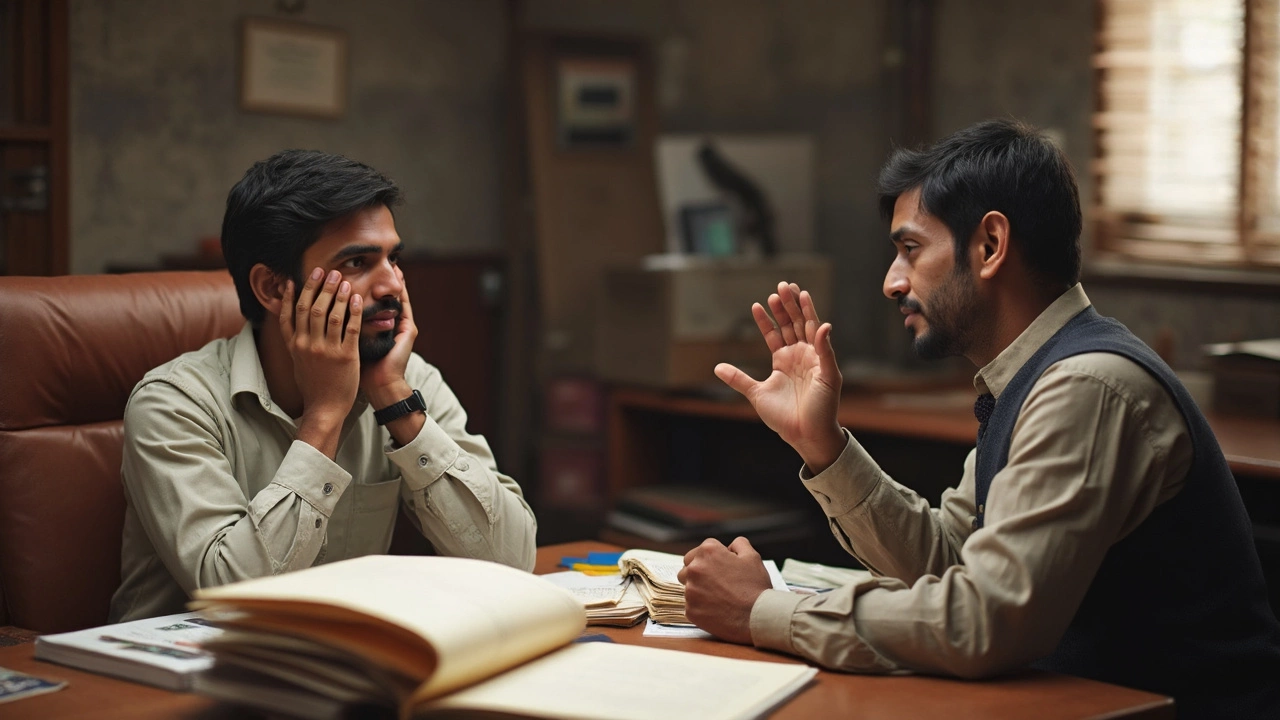If you ever find yourself facing criminal charges and can't pay for a private lawyer, you’re not alone. In the U.S., the law actually guarantees you the right to legal help if you can't afford it. That's rooted in the Sixth Amendment, which says everyone gets a fair shake in court—including a lawyer to help them face the system.
So what happens if your bank account is empty? The court won’t just leave you hanging. They’ll ask about your finances. If you really can’t pay, they usually appoint a public defender or another court-appointed attorney to represent you, all free of charge. This isn't just a technicality—there are actual, dedicated lawyers whose jobs are to represent people in your exact situation.
But, here’s something a lot of people get confused about: not every free lawyer is the same. Public defenders are different from court-appointed lawyers and legal aid attorneys, and knowing which one you get can make a big difference in your case. We’ll walk through how it all works, what you can expect, and even bust some common myths you might hear about "free lawyers." If you ever need someone to stand up for you in court and cash is tight, you’ll want to know these facts.
- When You Can't Afford a Private Lawyer
- What Is a Public Defender?
- Court-Appointed and Legal Aid Attorneys
- Tips and Myths for Defendants Without Money
When You Can't Afford a Private Lawyer
If you're accused of a crime but can’t pony up thousands for a private attorney, you’re covered by some pretty strong laws. The U.S. Constitution guarantees your right to have legal help, and the famous 1963 Supreme Court case, Gideon v. Wainwright, made it clear: if you can’t afford a lawyer in a criminal case, the court’s got to provide one for you. That’s not just for show. It’s real protection, no matter the charge—felony or misdemeanor.
Here’s how it usually works. When you show up in court, they’ll ask if you can afford legal help. Sometimes you’ll fill out a quick form about your job, income, and bills. If you qualify, a public defender or another court-appointed attorney steps in and represents you. This is where the criminal lawyer near me idea gets real—these aren’t just some random lawyers. They know the local courts, judges, and prosecutors.
A lot of folks worry that getting a court-appointed lawyer means you’ll get less attention, or not have a fair shot. Truth is, most public defenders are experienced in the local system. If you’re not sure you qualify for free legal help, check these basics:
- Your total income is pretty low (usually less than 125-200% of the federal poverty level, but it depends on your state).
- Your living expenses—kid costs, rent, utilities—leave you without much extra every month.
- You don’t have assets you could realistically sell to pay a lawyer.
If you’re denied a public defender, you can ask the judge to review your case. Sometimes judges make mistakes or get incomplete info, so don’t be afraid to speak up if you truly can’t afford private counsel. Free legal representation isn’t a gift—it’s your right.
What Is a Public Defender?
When you hear the phrase criminal lawyer near me and think of someone the state gives you for free, you’re basically talking about a public defender. Public defenders are full-time attorneys paid by the government. Their whole job is to represent people who don’t have the cash for a private lawyer, and they only handle criminal cases.
Let’s clear up a big rumor: public defenders are real lawyers. They have law degrees, passed the bar, and know the ropes in the court system. Most public defenders actually handle way more cases than private lawyers—sometimes hundreds a year—which means they know a lot about how things actually work in criminal court.
Here’s how the public defender system is set up:
- If you get arrested and say you can’t pay for a lawyer, the court reviews your finances.
- If you qualify, you’re assigned a public defender, usually at your first court appearance.
- Your public defender is your main lawyer from start to finish (unless there’s a conflict or you change lawyers for another reason).
This system was only guaranteed after a famous Supreme Court case—Gideon v. Wainwright—in 1963. Before that, poor people sometimes had nobody to help them. Today, every state has a public defender’s office, though some are more funded and organized than others.
| Fact | Data |
|---|---|
| When public defender rights started nationwide | 1963, after Gideon v. Wainwright |
| Typical public defender caseload per year | Up to 200 or more felony cases (and even more misdemeanors) |
| Main employer | State or county government |
One thing to watch out for: public defenders have heavy workloads, so they might not have as much time for every client as a private lawyer would. But you still get representation, legal advice, and someone who knows the local criminal court system inside-out. If you have questions, don’t be shy—public defenders expect you to ask about your case and your rights.

Court-Appointed and Legal Aid Attorneys
If you don’t qualify for a public defender—or if your local area doesn’t have enough public defenders—the court can assign you a court-appointed attorney. These lawyers are private attorneys who take cases from the court, usually because there’s a need for extra help. Even though they aren’t full-time government employees, they’re paid by the county or state to represent folks who qualify as low-income.
The process is pretty straightforward. If you’re charged with a crime and can’t afford a lawyer, the judge will have you fill out a financial affidavit—basically paperwork about your income and expenses. If you hit the right numbers, you’ll get legal representation at no personal cost. Your appointed lawyer handles your defense just like a private attorney. They’ll meet with you, review the evidence, strike deals if needed, or take your case to trial.
There’s also something called legal aid attorneys. These lawyers work for non-profit organizations that focus on helping people who don’t have the money for private representation. They usually handle cases that public defenders or court-appointed lawyers can’t take, often minor criminal charges, expungements, or even some immigration matters. Legal aid groups often get swamped, so qualifying can take longer, and they might have more limits on the type of help they provide.
Here’s a quick glance at the main differences between these types of attorneys:
| Type of Attorney | Who Pays | Main Focus | How Assigned |
|---|---|---|---|
| Public Defender | Government | Criminal defense for the poor | Automatically if eligible |
| Court-Appointed Attorney | County/State | Criminal defense for overflow or conflict cases | Appointed by judge or court |
| Legal Aid Attorney | Non-profit or Grant | Various legal issues, some criminal | Apply through legal aid program |
One thing to keep in mind—no matter which option you get, they all have to follow the same rules and codes as any lawyer paid privately. Sometimes people worry a court-appointed attorney won’t fight as hard. Truth is, these lawyers know the system and get just as much courtroom time, if not more, than some pricey private attorneys.
If you hear the phrase criminal lawyer near me and think only people with cash have legal protection, that’s just not how the American system works. If you’re low-income and in trouble, there’s usually a process to make sure you get a real legal defender—no wallet required.
Tips and Myths for Defendants Without Money
Way too many folks believe if they can’t afford a lawyer, they’re out of luck. That’s just not true. The system isn’t perfect, but if you’re low on cash in a criminal case, you have rights, and you get legal help—usually through a public defender or a court-appointed attorney. Plenty of myths float around that make defendants worry for no reason. Let’s break them down.
- Myth: Public defenders don’t care about their clients.
Fact: Public defenders are real attorneys, licensed and experienced. Sure, they’re busy—some carry over 100 cases at a time according to the National Association for Public Defense—but that doesn’t mean they don’t fight for you. Public defenders win cases, negotiate deals, and take cases to trial every day. - Myth: You can’t choose your lawyer if you can’t pay.
Fact: It’s true—if you get a public defender or a court-appointed lawyer, you usually don’t get to pick. But you can always ask for a new one if something serious comes up, like a conflict of interest. Don’t expect a swap just because you don’t hit it off, though. - Myth: Free legal aid means bad results.
Fact: Not always. A 2023 study in Texas found no clear difference in outcome for felony defendants with public defenders versus those with paid private lawyers. Experience, local court relationships, and workload shape how things go—not the price tag on the lawyer. - Myth: Asking for a public defender looks bad in court.
Fact: No one in the system will hold it against you for taking a public defender. Judges expect it; prosecutors see it every day.
“A good public defender can make the difference when you’re up against the system with few resources. Don’t buy into the hype that you’re stuck with second best.” — Professor Harold Carter, Criminal Law, UCLA
Here are some practical tips that actually help:
- Speak up early. If you need legal help, say so right away in court. Don’t wait until things spiral.
- Be honest about your finances. To get free representation, you usually fill out an affidavit showing you can’t pay. Don’t fudge it—courts can check, and lying can get you in trouble.
- Stay organized. Keep every piece of paper—charging documents, letters, court dates—in one folder. Bring it every time you meet your lawyer.
- Ask questions. Public defenders and legal aid lawyers want you to understand what’s happening. Ask about your options, possible outcomes, and what to expect next.
- Keep track of communication. If you leave a voicemail or send an email, write down the date and what it was about. It helps if someone else takes over your case or if you have to make a complaint.
Here’s what public defender workloads actually look like. These numbers might surprise you:
| State | Average Number of Cases per Public Defender (2024) |
|---|---|
| California | 110 |
| Florida | 130 |
| Texas | 95 |
| New York | 86 |
If you feel overwhelmed, remember: you’re not alone, and the law is on your side. No one should have to go through a criminal case without a lawyer, no matter their bank balance. If you’re looking for a criminal lawyer near me and you can’t afford one, these are your best steps to a fair defense.
